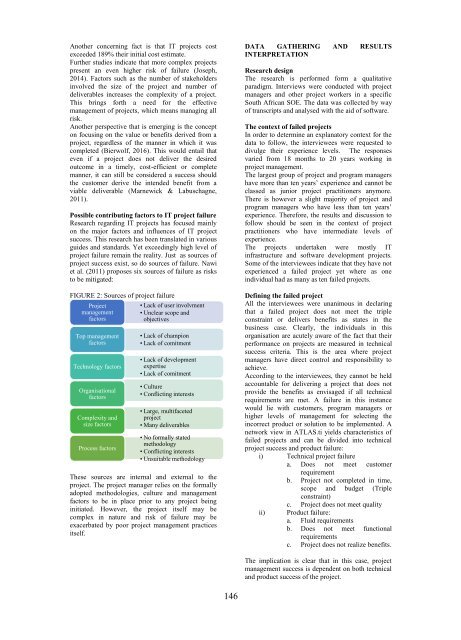Pan-Pacific Conference XXXIV. Designing New Business Models in Developing Economies
This publication represents the Proceedings of the 34th Annual Pan-Pacific Conference being held in Lima, Peru May 29-31, 2017. The Pan-Pacific Conference has served as an important forum for the exchange of ideas and information for promoting understanding and cooperation among the peoples of the world since 1984. Last year, we had a memorable conference in Miri, Malaysia, in cooperation with Curtin University Sarawak, under the theme of “Building a Smart Society through Innovation and Co-creation.” Professor Pauline Ho served as Chair of the Local Organizing Committee, with strong leadership support of Pro Vice-Chancellor Professor Jim Mienczakowski and Dean Jonathan Winterton.
This publication represents the Proceedings of the 34th Annual Pan-Pacific Conference being held in Lima, Peru May 29-31, 2017. The Pan-Pacific Conference has served as an important forum for the exchange of ideas and information for promoting understanding and cooperation among the peoples of the world since 1984. Last year, we had a memorable conference in Miri, Malaysia, in cooperation with Curtin University Sarawak, under the theme of “Building a Smart Society through Innovation and Co-creation.” Professor Pauline Ho served as Chair of the Local Organizing Committee, with strong leadership support of Pro Vice-Chancellor Professor Jim Mienczakowski and Dean Jonathan Winterton.
You also want an ePaper? Increase the reach of your titles
YUMPU automatically turns print PDFs into web optimized ePapers that Google loves.
Another concern<strong>in</strong>g fact is that IT projects cost<br />
exceeded 189% their <strong>in</strong>itial cost estimate.<br />
Further studies <strong>in</strong>dicate that more complex projects<br />
present an even higher risk of failure (Joseph,<br />
2014). Factors such as the number of stakeholders<br />
<strong>in</strong>volved the size of the project and number of<br />
deliverables <strong>in</strong>creases the complexity of a project.<br />
This br<strong>in</strong>gs forth a need for the effective<br />
management of projects, which means manag<strong>in</strong>g all<br />
risk.<br />
Another perspective that is emerg<strong>in</strong>g is the concept<br />
on focus<strong>in</strong>g on the value or benefits derived from a<br />
project, regardless of the manner <strong>in</strong> which it was<br />
completed (Bierwolf, 2016). This would entail that<br />
even if a project does not deliver the desired<br />
outcome <strong>in</strong> a timely, cost-efficient or complete<br />
manner, it can still be considered a success should<br />
the customer derive the <strong>in</strong>tended benefit from a<br />
viable deliverable (Marnewick & Labuschagne,<br />
2011).<br />
Possible contribut<strong>in</strong>g factors to IT project failure<br />
Research regard<strong>in</strong>g IT projects has focused ma<strong>in</strong>ly<br />
on the major factors and <strong>in</strong>fluences of IT project<br />
success. This research has been translated <strong>in</strong> various<br />
guides and standards. Yet exceed<strong>in</strong>gly high level of<br />
project failure rema<strong>in</strong> the reality. Just as sources of<br />
project success exist, so do sources of failure. Nawi<br />
et al. (2011) proposes six sources of failure as risks<br />
to be mitigated:<br />
FIGURE 2: Sources of project failure<br />
Project<br />
management<br />
factors<br />
Top management<br />
factors<br />
Technology factors<br />
Organisational<br />
factors<br />
Complexity and<br />
size factors<br />
Process factors<br />
• Lack of user <strong>in</strong>volvment<br />
• Unclear scope and<br />
objectives<br />
• Lack of champion<br />
• Lack of comitment<br />
• Lack of development<br />
expertise<br />
• Lack of comitment<br />
• Culture<br />
• Conflict<strong>in</strong>g <strong>in</strong>terests<br />
• Large, multifaceted<br />
project<br />
• Many deliverables<br />
• No formally stated<br />
methodology<br />
• Conflict<strong>in</strong>g <strong>in</strong>terests<br />
• Unsuitable methodology<br />
These sources are <strong>in</strong>ternal and external to the<br />
project. The project manager relies on the formally<br />
adopted methodologies, culture and management<br />
factors to be <strong>in</strong> place prior to any project be<strong>in</strong>g<br />
<strong>in</strong>itiated. However, the project itself may be<br />
complex <strong>in</strong> nature and risk of failure may be<br />
exacerbated by poor project management practices<br />
itself.<br />
DATA GATHERING AND RESULTS<br />
INTERPRETATION<br />
Research design<br />
The research is performed form a qualitative<br />
paradigm. Interviews were conducted with project<br />
managers and other project workers <strong>in</strong> a specific<br />
South African SOE. The data was collected by way<br />
of transcripts and analysed with the aid of software.<br />
The context of failed projects<br />
In order to determ<strong>in</strong>e an explanatory context for the<br />
data to follow, the <strong>in</strong>terviewees were requested to<br />
divulge their experience levels. The responses<br />
varied from 18 months to 20 years work<strong>in</strong>g <strong>in</strong><br />
project management.<br />
The largest group of project and program managers<br />
have more than ten years’ experience and cannot be<br />
classed as junior project practitioners anymore.<br />
There is however a slight majority of project and<br />
program managers who have less than ten years’<br />
experience. Therefore, the results and discussion to<br />
follow should be seen <strong>in</strong> the context of project<br />
practitioners who have <strong>in</strong>termediate levels of<br />
experience.<br />
The projects undertaken were mostly IT<br />
<strong>in</strong>frastructure and software development projects.<br />
Some of the <strong>in</strong>terviewees <strong>in</strong>dicate that they have not<br />
experienced a failed project yet where as one<br />
<strong>in</strong>dividual had as many as ten failed projects.<br />
Def<strong>in</strong><strong>in</strong>g the failed project<br />
All the <strong>in</strong>terviewees were unanimous <strong>in</strong> declar<strong>in</strong>g<br />
that a failed project does not meet the triple<br />
constra<strong>in</strong>t or delivers benefits as states <strong>in</strong> the<br />
bus<strong>in</strong>ess case. Clearly, the <strong>in</strong>dividuals <strong>in</strong> this<br />
organisation are acutely aware of the fact that their<br />
performance on projects are measured <strong>in</strong> technical<br />
success criteria. This is the area where project<br />
managers have direct control and responsibility to<br />
achieve.<br />
Accord<strong>in</strong>g to the <strong>in</strong>terviewees, they cannot be held<br />
accountable for deliver<strong>in</strong>g a project that does not<br />
provide the benefits as envisaged if all technical<br />
requirements are met. A failure <strong>in</strong> this <strong>in</strong>stance<br />
would lie with customers, program managers or<br />
higher levels of management for select<strong>in</strong>g the<br />
<strong>in</strong>correct product or solution to be implemented. A<br />
network view <strong>in</strong> ATLAS.ti yields characteristics of<br />
failed projects and can be divided <strong>in</strong>to technical<br />
project success and product failure:<br />
i) Technical project failure<br />
a. Does not meet customer<br />
requirement<br />
b. Project not completed <strong>in</strong> time,<br />
scope and budget (Triple<br />
constra<strong>in</strong>t)<br />
c. Project does not meet quality<br />
ii) Product failure:<br />
a. Fluid requirements<br />
b. Does not meet functional<br />
requirements<br />
c. Project does not realize benefits.<br />
The implication is clear that <strong>in</strong> this case, project<br />
management success is dependent on both technical<br />
and product success of the project.<br />
146

















